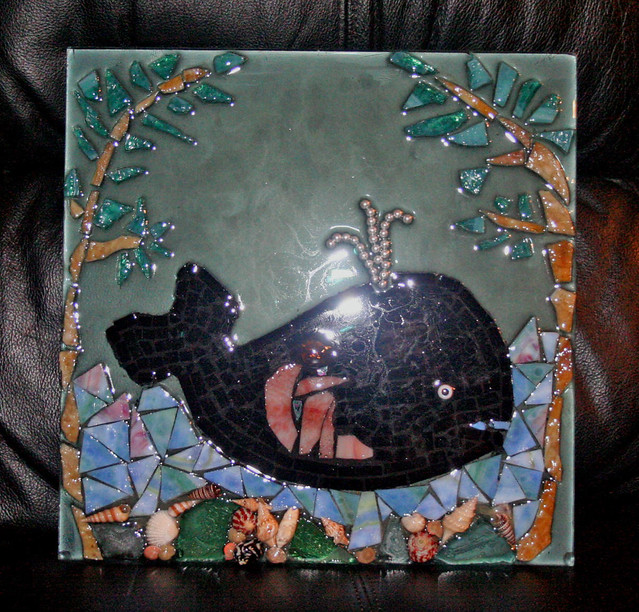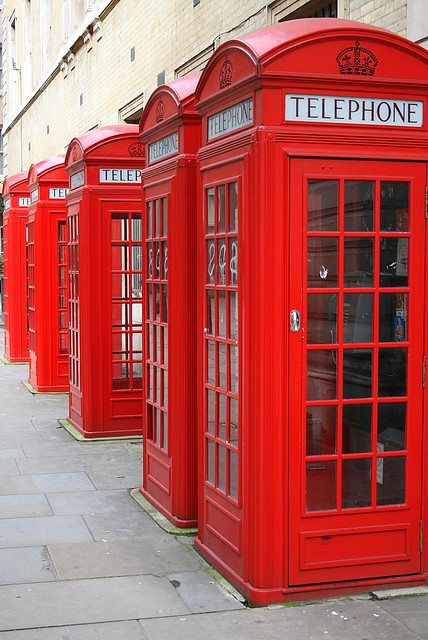 |
| by dnkemontoh @ Flickr |
Besides his own book, Jonah comes up in a few other passages. In 2 Kings 14: 23-25, he’s identified as the son of Amittai, as he also is in Jonah 1:1, and he had the message of the restoration of Israel’s borders during Jeroboam’s reign. In the gospels, Jesus makes two references to Jonah, one in Matthew 12:38-42 and again in Matthew 16:4. (In Luke 11:29-32, the author seems to refer to one or both of these stories from Matthew.) Jesus describes his own death and resurrection as “the sign of Jonah” and says of the Jews of his time that they will be condemned by the Ninevites, who heard Jonah and repented, while they have one greater than Jonah, but have not repented. But that’s not what this study is about. This is about Jonah’s job. It’s adapted from Under the Unpredictable Plant, by Eugene Peterson.
Tarshish or bust
Read Jonah 1:1-3
1The Lord spoke his word to Jonah, son of Amittai. He said, 2“Leave at once for the important city, Nineveh. Announce to the people that I can no longer overlook the wicked things they have done.” 3Jonah immediately tried to run away from the Lord by going to Tarshish. He went to Joppa and found a ship going to Tarshish. He paid for the trip and went on board. He wanted to go to Tarshish to get away from the Lord.
Dream job: prophet?
- What would be cool about being a prophet?
- What is your dream job as of right now? Why?
- What is your “job description” right now?
Why not Nineveh? Nineveh had a long history of terrible occupants, misery built on misery. Nobody in their right mind would want to go there, least of all a Jew, one of their traditional enemies.
- What are the worst aspects of what you have to do?
Why Tarshish? Tarshish was almost mythical. An exotic Phoenician settlement, it was like the Wild West to Jews of that time.
- What’s your Tarshish? If you were to run away from responsibilities, where would you go or what would you do?
- Would you really go there if you got the chance?
It’s not like he was running to Tarshish to be a villain. Jonah probably would have still been planning on doing God’s work.
- So what was so wrong about going?
The Storm
Read Jonah 1:4-16
4The Lord sent a violent wind over the sea. The storm was so powerful that the ship was in danger of breaking up. 5The sailors were afraid, and they cried to their gods for help. They began to throw the cargo overboard to lighten the ship’s load. Now, Jonah had gone below deck and was lying there sound asleep. 6The captain of the ship went to him and asked, “How can you sleep? Get up, and pray to your God. Maybe he will notice us, and we won’t die.” 7Then the sailors said to each other, “Let’s throw dice to find out who is responsible for bringing this disaster on us.” So they threw dice, and the dice indicated that Jonah was responsible. 8They asked him, “Tell us, why has this disaster happened to us? What do you do for a living? Where do you come from? What country are you from? What nationality are you?”
9Jonah answered them, “I’m a Hebrew. I worship the Lord, the God of heaven. He is the God who made the sea and the land.” 10Then the men were terrified. They knew that he was running away from the Lord, because he had told them. They asked Jonah, “Why have you done this?” 11The storm was getting worse. So they asked Jonah, “What should we do with you to calm the sea?” 12He told them, “Throw me overboard. Then the sea will become calm. I know that I’m responsible for this violent storm.” 13Instead, the men tried to row harder to get the ship back to shore, but they couldn’t do it. The storm was getting worse.
14So they cried to the Lord for help: “Please, Lord, don’t let us die for taking this man’s life. Don’t hold us responsible for the death of an innocent man, because you, Lord, do whatever you want.” 15Then they took Jonah and threw him overboard, and the sea became calm. 16The men were terrified of the Lord. They offered sacrifices and made vows to the Lord.[a]
17The Lord sent a big fish to swallow Jonah. Jonah was inside the fish for three days and three nights.
Jonah was contentedly asleep in the hold while the storm built and raged. As far as he knew, things were all right.
- Was there ever a time in your life when things weren’t going well, despite all signs being to the contrary? How did you wake up?
The amazing thing about being thrown into the sea is that it saved the sailors and Jonah.
- Is there a time in your life when you saved the ship by throwing someone/something overboard? Is there something in your life today that needs to be thrown overboard?
- Has there been a situation in your life when you were thrown overboard and it worked to your good?
Jonah’s act, and, more so, God’s response has an amazing effect on the sailors. They go from each worshipping their own god to worshipping the true God.
- Why do you think?
- Do you think God has a calling for you?


